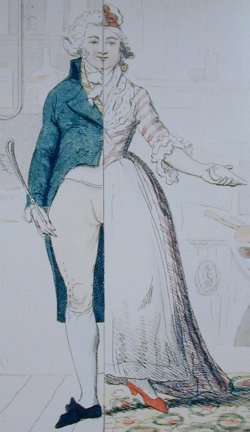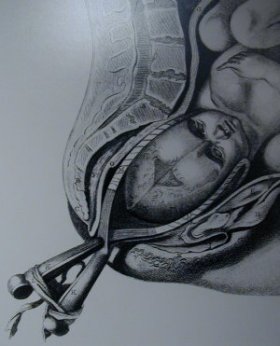The Man-midwife
Today, men enter a female preserve. The University of Houston's College of Engineering presents this series about the machines that make our civilization run, and the people whose ingenuity created them.
Before the plague, childbirth was women's business. Midwives were part of the feudal balance. Farms passed to children. If you had too many children, your farm split into small units. Birth control was a key element in the feudal equation. Midwives were confidantes and advisors to medieval women. In that role, they provided the means for population control.
By the mid-1400s, the plague had killed off two-thirds of Europe. Midwives still delivered babies, but they did so in a world that had to be repopulated. They didn't reassert their role as agents of birth control until the 1600s.
By then the new force of mercantile economics was rising. Mercantilism used two kinds of exploitation to balance trade. One was the use of colonies to supply raw materials. The other was creating a large lower class to manufacture goods for sale. That meant fostering childbirth among the poor.
Historian Londa Schiebinger explains how midwives collided with the mercantile agenda. It was then that college educated physicians -- all males -- took an interest in childbirth. One can be drawn into debate on two issues at this point. One is whether 17th century medical men were conscious agents of mercantilism. The other is whether their intervention was for good or ill.
Midwives had no access to schooling. They were often illiterate. They trained by apprenticeship. Now the medical schools created a new professional called a man-midwife. They armed him with surgical instruments, whose use was denied to women. Forceps, for example, could be a blessing. But, like many drugs today, doctors overused them. Midwives had worked around difficult births with gentle tricks of repositioning. Man-midwives were often reckless with their tools. Birth assistance changed from succor among women to a profitable enterprise.
These men mutated into today's gynecologists. Today their field includes women. Yet the story leaves us uneasy. Did men consciously block women's freedom by opposing birth control and controlling birth? By the mid-18th century, medical professionals certainly had midwifery under attack. In 1760 a midwife wrote a book on birthing. She angrily charged that men were trying to "forge the phantom of incapacity" in women's minds.
The history of birthing easily mires into sexual politics. The technology of birth won't advance when it's in the hands of politicians of either gender. I'm hard pressed to name a more primary technology -- or any I'd rather see out of the hands of people with hidden agendas.
I'm John Lienhard at the University of Houston, where we're interested in the way inventive minds work.
(Theme music)
Schiebinger, L., The Mind Has No Sex? Cambridge, Mass.: Harvard University Press, 1989, Chapter 4.
For more on man-midwifery, see Episode 1382.


Left: An 18th century cartoon about man midwives. Right: A forceps delivery